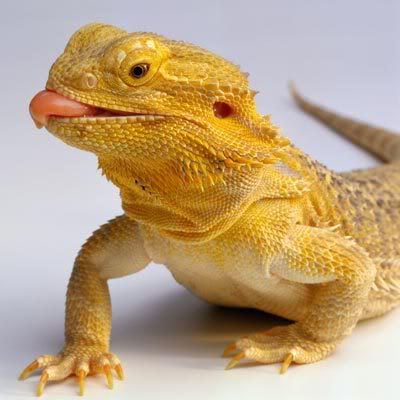Beardie Love: Everything You Need to Know on How to Care for a Bearded Dragon
Introduction to Bearded Dragon Care
Bearded dragons are cute and fascinating pets that are easy to care for. A bearded dragon can make a great addition to your family whether you are a beginner or an experienced reptile owner. This post will guide you through the basics of how to care for a bearded dragon, including food, habitat, and health.
Habitat Setup for Your Bearded Dragon
Before you bring your bearded dragon home, you need to set up a habitat that is suitable for it. A 40-gallon tank is the minimum requirement for a bearded dragon habitat. You should also provide a basking spot that is around 100°F (37.7°C) and a cooler spot that is around 80°F (26.6°C).

It is important to provide your bearded dragon with UVB lighting, which mimics natural sunlight and helps with vitamin D3 production that is vital for your pet’s well-being. Don’t forget to include some hiding spots, as bearded dragons like to feel secure and cozy in enclosed spaces. Cypress mulch or reptile substrate are suitable for the bottom of the enclosure.
Food and Water for Your Bearded Dragon
A healthy diet is important for the growth and well-being of your bearded dragon. They are omnivores that require both vegetables and insects in their diet. The optimal ratio is around 80% vegetables and 20% insects. You should provide a variety of vegetables, such as carrots, squash, and collard greens. Insects that are suitable for your pet include crickets, dubia roaches, and superworms.

Fresh water should always be available for your bearded dragon. You can use a water dish that is shallow enough for your pet to bathe in. Bearded dragons love to soak in water to aid with shedding and staying hydrated. It is important to clean the water dish frequently to prevent bacterial growth and ensure the water is always fresh.
Health Concerns for Bearded Dragons
Bearded dragons are generally healthy pets that have a lifespan of 10-15 years. However, they can develop health issues if not properly cared for. Common health concerns for bearded dragons include metabolic bone disease, respiratory infections, and parasitic infections. Make sure to schedule regular check-ups with a reptile veterinarian to ensure your pet stays healthy and happy.

Another key aspect of bearded dragon health is hygiene. Bearded dragons can carry salmonella bacteria, which can cause illness in humans. You should wash your hands before and after handling your pet, and always clean the habitat thoroughly to prevent bacterial growth. It is also important to keep the habitat clean and tidy to prevent the accumulation of feces, which can attract pests and cause odors.
Conclusion
In conclusion, bearded dragons are fascinating pets that can make a great addition to your family. By following the guidelines outlined in this post, you can ensure that your pet stays healthy, happy, and comfortable. Always do your research and consult with experts if you have any questions or concerns about caring for your bearded dragon. Start your beardie love story today with these tips on how to care for a bearded dragon!
